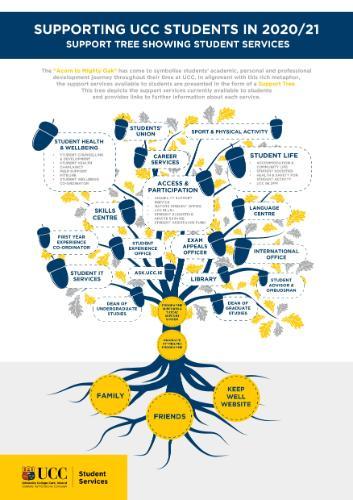In This Section
- English
- About the Department
- People
- Study
- Research
- News
- Media Gallery
- Edmund Spenser in Cork - School of English UCC
- Mary Breen: Pride and Prejudice
- MA in Irish Writing and Film
- Ann Coughlan: The Irish Influence on America's Greatest Abolitionist
- MA in Modernities: Romanticism, Modernism, Postmodernism
- MA in American Literature and Film
- MA in English Texts and Contexts: Medieval to Renaissance
- PhD in English
- Prof. Claire Connolly
- Tonio Colona - PhD in the School of English, UCC
- Prof Patricia Coughlan
- Mike Waldron - PhD in the School of English
- Ken Rooney and Heather Laird Book Launch
- School Welcome Event September 2014
- Contemporary American Trauma Narratives Book Launch
- Staged Transgressions in Shakespeare's England
- Seamus Heaney Memorial Event September 2013
- Creative Writing
- Current Students
- Student Achievements
- Digital Humanities
- Creative Writing
ALL YEARS: Application for Extension
All applications for extensions must be made via the link below.
Please do not email a lecturer or the office directly - only applications received via the link will be processed.
LINK: DEPARTMENT OF ENGLISH EXTENSION REQUEST FORM
Please note that requests for extensions can only be submitted for continuously-assessed modules, and cannot be made for modules conducted by written (summer) examination.
Students should use the university's deferral or mitigation process in the event they are unable to attend an examination (on grounds) https://www.ucc.ie/en/student-records/exams/appeal-mitigation-recheck/mitigation/
First Year
DOCUMENTS FOR FIRST YEAR STUDENTS:
CK101 BA Arts
CK101 - First Year Booklet 2025-2026 FINAL
CK109 BA English
CK109 - First Year Booklet 2025-2026 FINAL
Skills Centre Sessions
If you are interested in improving your writing skills and developing related skills to help you with university study, such as note taking, time management, study skills, and exam preparation, you may be interested in the sessions offered by the Skills Centre, located in the Berkeley Centre, Q-1, Boole Library.
For details, visit: skillscentre@ucc.ie
Students can sign up here: http://skillscentre.ucc.ie/book-your-skills-session/
Second Year
DOCUMENTS FOR SECOND YEAR:
CK101 BA Arts Second Year
CK101 - Second Year Booklet 2025-2026 FINAL
CK109 BA English Second Year
CK109 - Second Year Booklet 205-2026 FINAL
Teaching Council (Essential Areas of Study)
Third Year
DOCUMENTS FOR THIRD YEAR:
CK101 BA Arts
CK101 - Third Year Booklet 2025-2026 FINAL
CK109 BA English
CK109 - Third Year Booklet 2025-2026 FINAL
Teaching Council (Essential Areas of Study)
Visiting Students Booklet 2025-2026
Academic Integrity in Examinations and Assessments
LINKS:
UCC Academic Integrity in Examinations and Assessments:
https://www.ucc.ie/en/academicgov/policies/exam-policies/
ENGLISH Guide on Academic Integrity in Examinations and Assessments plus English Assessment Cover Sheet
ENGLISH Academic Integrity Policy and Procedures / Assessment Cover Sheet
Supports and Services
Year Committees and Staff-Student Meetings
Within the Department, it is the responsibility of certain staff members to oversee each year group and to ensure that the teaching and assessment for all the courses in each year is administered and delivered efficiently and effectively. The Year Committees also arrange for students to act as representatives for the year group by attending staff-student meetings. Staff-Student meetings are an important way for students to voice their opinion and give feedback so why not consider becoming a rep? And do always remember that you should find out who your reps are, and let them know of any issues you think are important and need to be brought to the attention of the Department.
- First Year Committee: contact Dr Anne Etienne a.etienne@ucc.ie
- Second Year Committee: contact Dr Sarah Bezan SBezan@ucc.ie
- Third Year Committee: contact Dr Edel Semple e.semple@ucc.ie
Teaching Officer
Dr Ken Rooney k.rooney@ucc.ie is the Teaching Officer, and one of his responsibilities is to advise students who may be having difficulty with their studies due to illness, family circumstances, etc.
Accessibility Officer
Dr Stephen Roddy is the School Accessibility Officer. Feel free to contact him with your queries: <SRoddy@ucc.ie>.
Help & Support
Within the university, there are also a number of places to find help and support:
- Student Counselling and Development
- Student Health
- Students' Union
- Student Advisor and Ombudsman
- Disability Support Services
Lowercase Second Hand Book Service
Student Services Support Tree
UCC has many different supports in place for students who might be struggling in these difficult times. Our Support Tree shows the services available to students.

Click the link below to view an interactive Support Tree infographic with links to relevant services
Contact Us
All offices in the School of English, for academic and administrative staff, are located in the O’Rahilly Building (ORB) on the first floor.
Department Administrative Office: ORB 1.57 [O'Rahilly Building]
In-Person Office Opening Times:
Monday 9.30 - 13.00 & 14.00 - 15.30
Wednesday 9.30 - 13.00
Thursday 9.30 - 13.00
Outside of these hours, please contact us by email englishdepartment@ucc.ie
In all communications, please clearly identify your name, student number, and year. You should also check Canvas regularly for Department information and updates.
English Department
Roinn an Bhéarla
Contact us
O'Rahilly Building, University College Cork, Cork. Ireland
